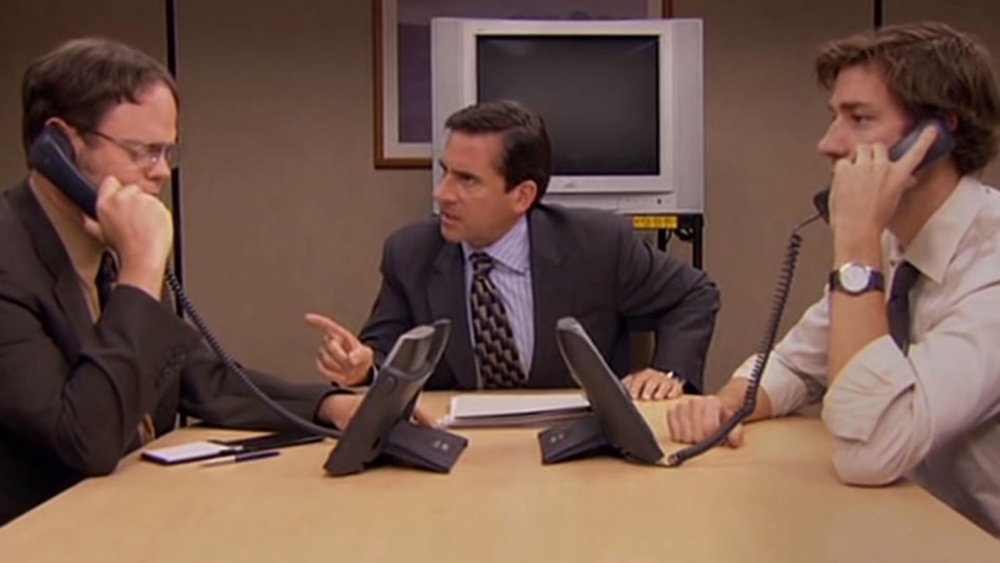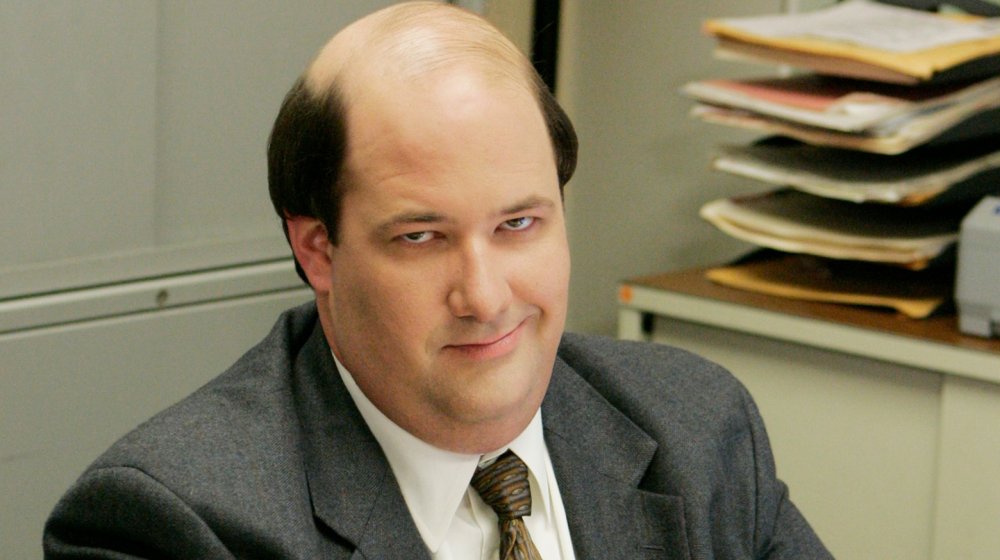Why The Office Was Almost Canceled After Only One Season
The Office enjoys a level of popularity most television programs only dream of reaching. The brainchild of Greg Daniels, inspired by the 2001 British series led by the ever-controversial Ricky Gervais, the American version leaped into the public consciousness back in 2005, stumbling at first, but finding its footing in the years to come. The show's unique characters, innovative mockumentary style, and memorable stories made it a smash hit beyond all expectations. Fast forward to May of 2013, and the show wound up with nine seasons under its belt, and one of the most committed fan bases in the world, who play a big hand in keeping its memory alive today.
Thanks to the fans, The Office is just as vital to current-day pop culture as it was a decade ago — so much so, that it's surprising some kind of cast reunion hasn't come about. A major factor in its continual relevancy is its presence on streaming platforms like Netflix, where The Office currently resides until it moves to NBCUniversal's Peacock platform in 2021. Fans new and old have binged all nine seasons, time and time again, but back in the day, amassing so many episodes wasn't a certainty.
In fact, as crazy as it is to think about, The Office could have easily went the way of the dinosaur after the first season, had it not been for a convenient set of circumstances.
iTunes gave The Office a second chance
It's difficult to imagine now, but when The Office first cropped up on NBC, it wasn't exactly making waves in the TV world as it does today. The poor Nielsen ratings told the entire story, and they indicated that the program was sinking fast, prompting NBC to consider pulling the plug altogether. Facing cancellation and a lack of any notable support from its small pool of viewers, The Office evaded its seemingly imminent demise thanks to the unlikeliest of sources: As reported by Engadget, the show only survived because of its inclusion on Apple's iTunes service, which indicated its true popularity.
According to former NBC Universal president Angela Bromstad, The Office's arrival on iTunes gave the station a fresh perspective on the show's viewership. "The network had only ordered so many episodes, but when it went on iTunes and really started taking off, that gave us another way to see the true potential other than just Nielsen."
People started to watch primarily through Apple's media library, and the numbers it pulled in prompted NBC to rethink their decision, and thus, they decided to give The Office a fair shake. Their choice turned out to be the correct one, allowing the series a chance to grow into the generation-defining sitcom fans still flock to today.

